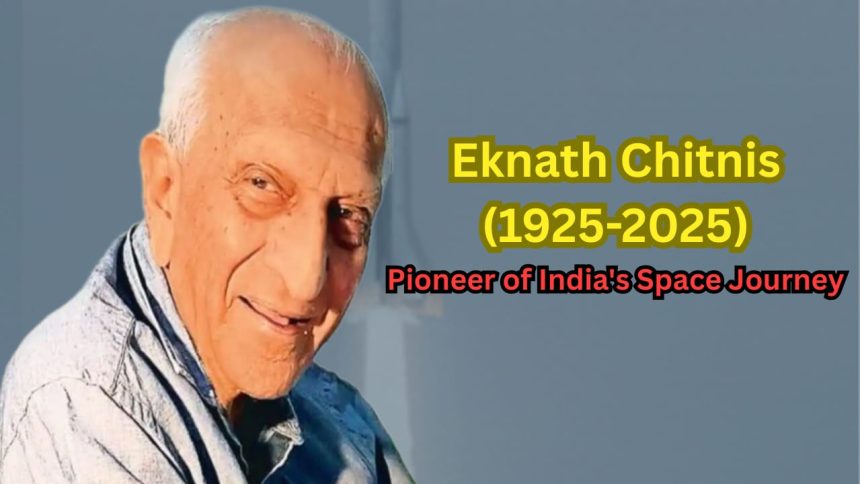By : Gitanjali Thorat | PR Desk
Pune : India’s renowned space scientist Eknath Vasant Chitnis, a key architect of the country’s space research programme and a Padma Bhushan recipient, passed away in Pune on Wednesday. He was 100 years old.
Born on July 25, 1925, in Kolhapur, Chitnis was among the early visionaries who laid the groundwork for India’s space exploration efforts. He served as the Member Secretary of the Indian National Committee for Space Research (INCOSPAR), which later evolved into the Indian Space Research Organisation (ISRO) under Dr. Vikram Sarabhai.
One of Chitnis’s most notable contributions was his role in identifying Thumba, Kerala, as the site for India’s first rocket launch station in 1961—a crucial step that launched the nation’s journey into space research.
From 1981 to 1985, he served as the Director of the Space Applications Centre (SAC) in Ahmedabad, steering projects in applied space technology and X-ray astronomy.
Chitnis also played a defining role in shaping the career of Dr. A.P.J. Abdul Kalam, then a young engineer. Impressed by Kalam’s credentials and recommendations, Chitnis supported his induction into the Indian space programme and his subsequent NASA training.
In 2008, he was unanimously elected Chairman of the Press Trust of India (PTI), reflecting his leadership beyond the scientific realm.
Honoured with the Padma Bhushan in 1985, Eknath Chitnis dedicated his life to advancing science, building institutions, and nurturing India’s brightest minds. His century-long journey mirrors the evolution of India’s space aspirations—from a modest beginning in Thumba to global recognition through ISRO’s achievements.
Padma Bhushan Space Scientist Eknath Vasant Chitnis Dies at 100 in Pune
Pioneer of India’s space research and mentor to A.P.J. Abdul Kalam, Dr. E.V. Chitnis leaves behind a century-long legacy of scientific vision.

Leave a comment
Leave a comment





